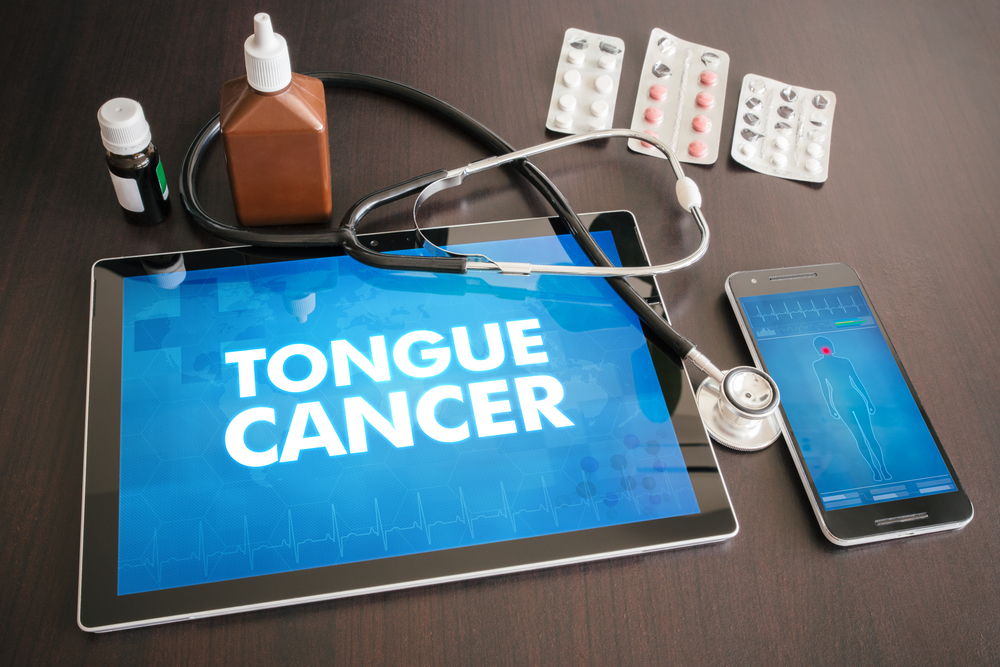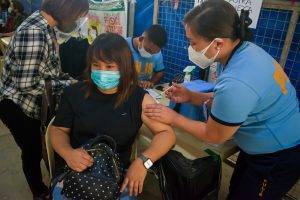Tongue cancer is one type of oral cancer which begins in the tongue and mostly occurs in the thin squamous cells present on the surface. It can occur at the tip of the tongue or at the base where it connects to the throat.
Cancer at the tip of the tongue is mostly diagnosed at an early stage and can be easily removed through surgery. However, when cancer is found at the base of the tongue diagnosis happens later and its treatment is complicated.

Tongue cancer is classified based on stage (spread of cancer) and grade (aggressiveness of cancer) of cancer. In terms of grade, tongue cancer can be classified as low, moderate and high, whereas the stages of cancer can be further classified as:
- T1-T4, where T indicates the size of the tumour with T1 being the smallest and T4 being the largest tumour
- N0-N3, where N indicates if cancer has spread to lymph nodes with N0 means it has not spread to lymph nodes and N3 shows that it has spread to many lymph nodes
- M indicates if cancer has metastasised to other parts of the body.
Symptoms of Tongue Cancer
- Lump or sore on side of tongue
- Pain near the tongue, neck or ear
- Change in voice
- Difficulty in swallowing
- Soreness. Pinkish-red in colour and sometimes bleed upon biting or touching
- Persistent swelling in the area of the lump, if any
- Loose teeth or fitting of dentures changes
Risk Factors & Causes
There are various factors which increase the risk of tongue cancer. One of the most important risk factors is the consumption of tobacco and alcohol. Tobacco increases the chance of developing tongue cancer by 5 times.
Studies show that smokeless tobacco consumption (chewing or sniffing) is more likely associated with the early onset of tongue cancer. The practice of betel quid chewing increases the chance of tongue cancer by several times. Another major risk factor is infection with human papillomavirus (HPV). Studies also suggest that African-American men are at a greater risk for developing cancer than Caucasians. One of the major causes of people developing tongue cancer is a lack of awareness and knowledge about the ill effects of tobacco products.
Statistics
- Tongue cancer is the most common site of occurrence of oral cancer
- 90% of tongue cancer cases are oral squamous cell carcinoma (OSCC) in origin
- Southeast Asia and Africa report the highest incidence and mortality rates due to tongue cancer
- In Japan, Taiwan, India, Yemen, Thailand and Iran, 42% of oral cancers are tongue cancers
- India shows the highest incidence of tongue cancer and thrice as many cases as reported by the U.S.
- The mortality rate for tongue cancer patients in India is quite high, i.e. 38%.
Diagnosis
- Tongue cancers are mostly diagnosed during a physical examination by doctors or dentists. They can also be identified through Endoscopy where a tube is inserted inside the mouth having light and a lens for viewing tumours. X-rays or CT (Computed Tomography) scans of the mouth and throat are also used for diagnosis. Another type of scan is PET (Positron Emission Tomography) scans, where radioactive substances are used to create a picture of organs. Another method of diagnosis includes Tongue Biopsy using fine-needle aspiration, incision or punch biopsy, where a tissue sample of the tongue is taken and identified for the presence of a tumour through biomarkers.
Corrective Remedies for Tongue Cancer
Once diagnosed with cancer, your oncologist discusses the plan for the removal of the cancer. Most doctors prefer the least invasive treatment regimes with minimal changes to the daily lifestyle of the patient. Following are the corrective remedies adopted for cancer treatment.
Surgery. Surgery depends on the location of cancer. In case the cancer is present in the oral part of the tongue, it is mostly a primary tumour which can be easily removed. Such a surgery does not cause much change in the functions of the tongue. However, if cancer has advanced and spread to lymph nodes, a major part of the tongue and affected lymph nodes need to be removed. Such surgeries affect speech and swallowing and result in lifestyle changes for the patient. Tumours at the base of the tongue are diagnosed at advanced stages and may already have spread to the lymph nodes.
Chemotherapy. Chemotherapy is suggested as an alternative to radiotherapy where a single or combination of drugs can be used to shrink the tumour. It is often prescribed after surgery to reduce the incidence of relapse. Some common drugs used in oral cancer treatment are Cisplatin, Carboplatin, Paclitaxel, and 5-Fluorouracil.
Radiotherapy. Using radiation to stop the cancer cells from dividing, slows the growth of a tumour. Intensity-modulated Radiation Therapy is more effective and has fewer side effects than conventional radiotherapy. Radiotherapy takes 5-6 weeks of daily treatment.
Tongue cancer like any other type of cancer can only be controlled by raising awareness of the ill effects of tobacco products and following a healthy lifestyle. Though most cancers are curable, they bring about major changes in the lifestyle of the patient.











